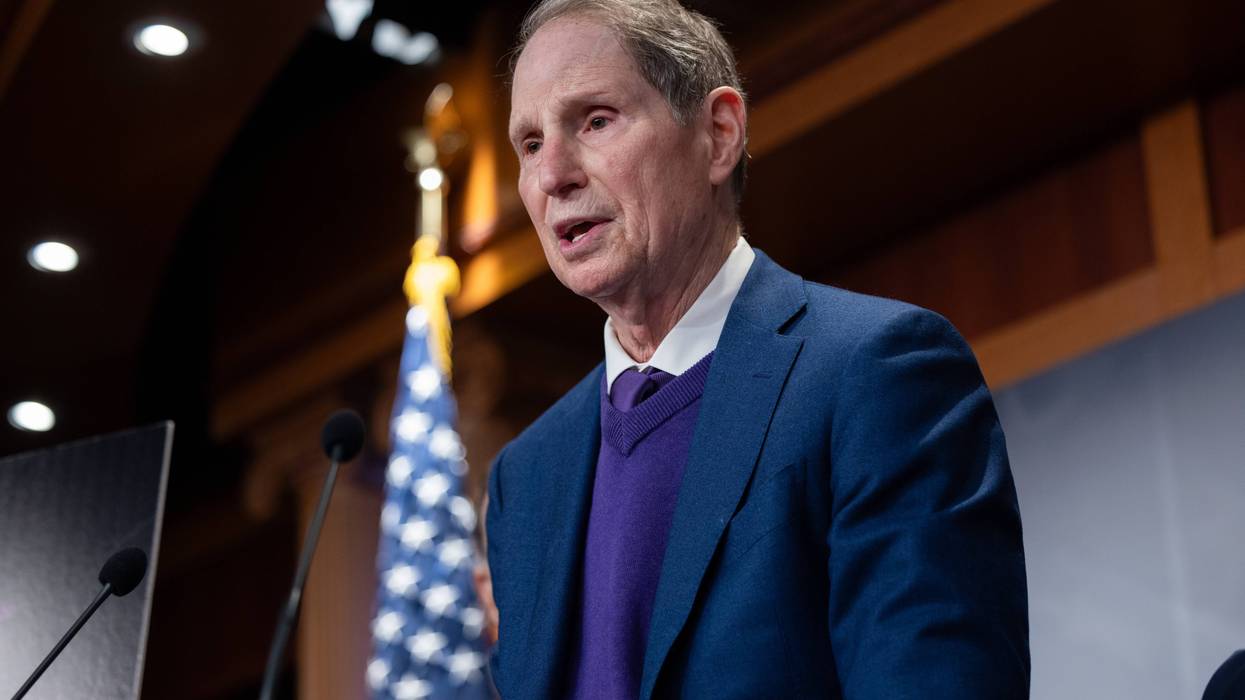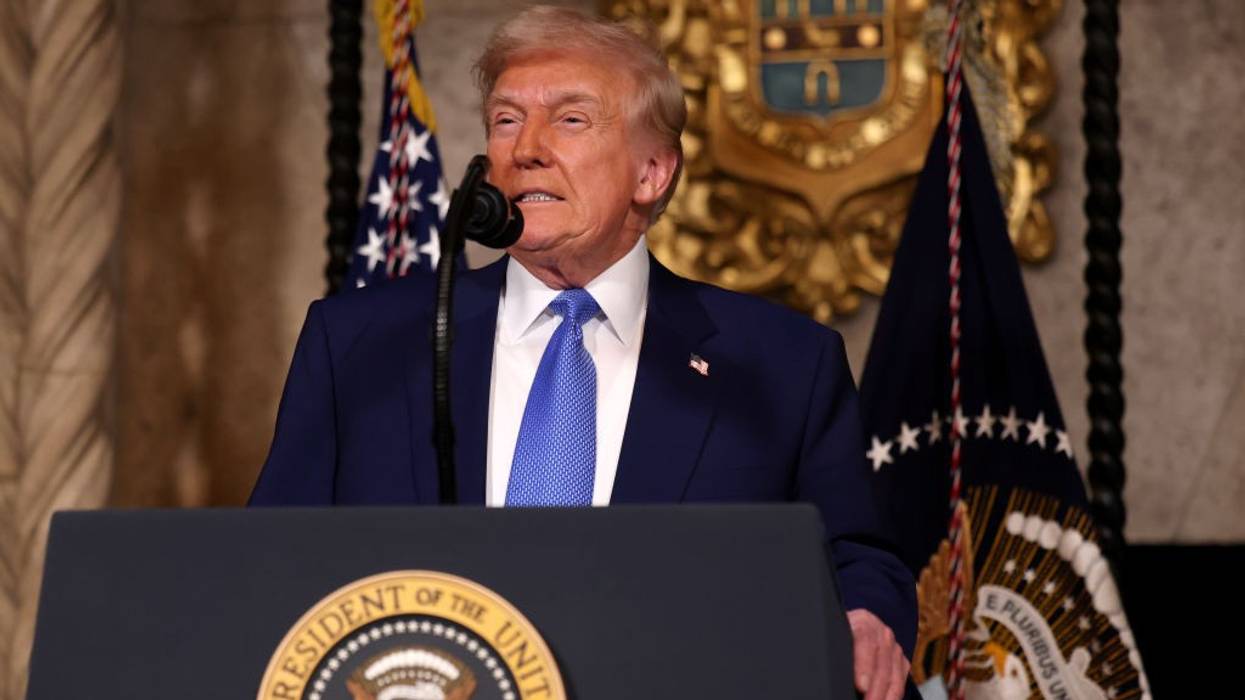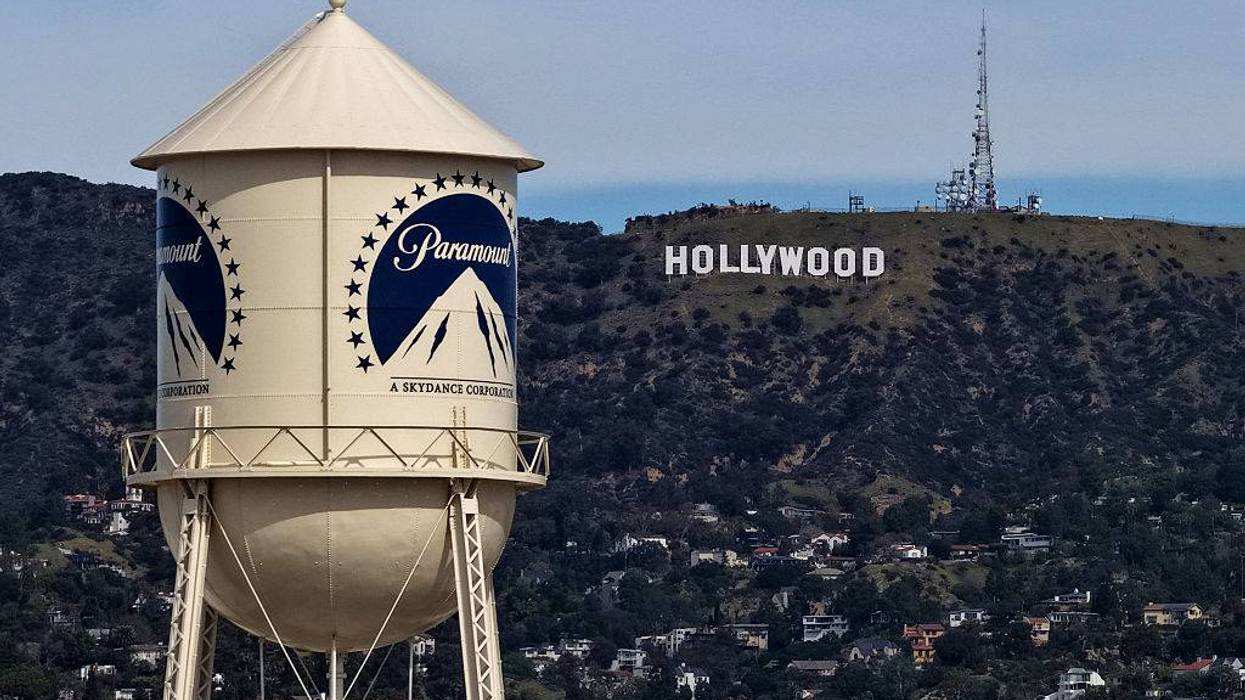September, 23 2014, 02:15pm EDT

Civil Liberties Organization Condemns Proposals to Restrict White House Area for Protest as an Outrageous Assault on Free Speech
The Partnership for Civil Justice Fund responds to calls to restrict access to the area outside the White House
WASHINGTON
"The Secret Service's security failures inside the perimeter of the White House grounds do not provide a legitimate basis for extinguishing the First Amendment rights of the American public outside those grounds, on the White House sidewalk and Pennsylvania Avenue, and should not be used as a pretext to accomplish those aims," stated Mara Verheyden-Hilliard, constitutional rights attorney and Executive Director of the Partnership for Civil Justice Fund.
"Closing the White House sidewalk or Pennsylvania Avenue to protest, or setting up checkpoints, would be an outrageous assault on free speech rights in the United States," stated Ms. Verheyden-Hilliard. "In fact, any such action would be an unconstitutional abridgment and illegal removal from public access of one of the most important, vibrant, historical and critical public fora that exists for the purpose of free expression."
"The lifeblood of democracy is the access by the people to public and proximate space to influence the government which returns regularly to proposals to keep the people as far away as possible," stated constitutional rights attorney Carl Messineo, Legal Director of the PCJF. "Time and again the government has tried to restrict access to public space for free speech activities, and time and again it has been up to a vigilant public and civil liberties advocates to stop these incursions."
The White House sidewalk and Pennsylvania Avenue are a central site for demonstrations and pickets as people come to petition their government.
The first mass assembly protest in front of the White House in the post 9-11 period took place on Sept. 24, 2005, when the Partnership for Civil Justice Fund successfully obtained a permit for an anti-war demonstration overcoming the government's four-year ban on such activity. Approximately 300,000 people marched on Pennsylvania Avenue directly in front of the White House. It was the first mass assembly that had been allowed there in those four years and since then (as prior to September 11) there have been many demonstrations, spontaneous or planned, large and small.
Last September, when President Obama held a Rose Garden press conference about the possibility of new airstrikes on Syria, the White House press corps reported that antiwar protesters on the White House sidewalk could be heard in the background of their live feeds. Officers immediately began ordering protesters off of the adjacent sidewalk where they had lawfully assembled. The Associated Press reported that these proposed new restrictive regulations on access to public space around the White House are the product of previous planning for a change in policy. This recent incursion is being used as the pretext, the triggering event for the public unveiling of the proposals.
"This is not just about 'security' concerns," stated Ms. Verheyden-Hilliard. "This is part of a growing trend that we are fighting in the removal of public space from the people, to whom it rightfully belongs."
We are witnessing a systematic effort in Washington, D.C., and around the country to restrict access to spaces where the public has gathered together for the exercise of cherished free speech rights, to engage in dissent and redress grievances. Each effort to reduce the use of public space for protest and assembly has been heralded by an urgent pretext of either "national security" or the protection of public space from the normal, incidental effects on land and grass of public use.
The Partnership for Civil Justice Fund has brought constitutional rights litigation as well as national public advocacy campaigns to keep public space open and available to the public. The PCJF successfully litigated the right of the people to have mass assembly on the Great Lawn of Central Park when the Bloomberg administration sought to close the area to protest under the pretext of protecting the grass. Similarly, in 2008 the PCJF launched a successful campaign to stop the National Park Service from driving mass protest from the National Mall also under the pretext of protecting the grass, a challenge that six year later is returning to the fore. The PCJF brought the litigation that struck down the D.C. police department's unprecedented military-style checkpoint program winning a unanimous ruling at the U.S. Court of Appeals for the D.C. Circuit which found the checkpoints unconstitutional. The PCJF is currently litigating the right of access for free speech along Pennsylvania Avenue at the Inauguration (as it has since 2001) as well as bringing numerous other free speech and public space cases.
The Partnership for Civil Justice Fund is a public interest legal organization that brings a unique and cutting edge approach dedicated to the defense of human and civil rights secured by law, the protection of free speech and dissent, and the elimination of prejudice and discrimination. Among the PCJF cases are constitutional law, civil rights, women's rights, economic justice matters and Freedom of Information Act cases.
(202) 232-1180LATEST NEWS
Wyden Presses DEA for Answers About Drug-Trafficking Probe Targeting Epstein and 14 Associates
"I’m convinced there’s a mess of financial crimes running throughout the Epstein story, and a lot of other people who were directly involved are still walking free," said the senator.
Feb 27, 2026
US Sen. Ron Wyden has given the Drug Enforcement Administration two weeks to provide key information on a secretive, long-running investigation into potential drug trafficking and money laundering by the late convicted sex offender Jeffrey Epstein and 14 co-conspirators.
The Oregon Democrat wrote to DEA Administrator Terrance Cole asking for a fully unredacted version of a 69-page memo from 2015 that was prepared by the director of the Organized Crime Drug Enforcement Task Forces (OCDETF) Fusion Center, a specialized Department of Justice (DOJ) unit that President Donald Trump shut down last year.
A heavily redacted version of the memo was included in the Epstein files that were released last month and referred to an OCDETF probe nicknamed "Chain Reaction."
The investigation had been opened in 2010, according to the document, and was still active at the time the memo was drafted. Epstein's 14 co-conspirators, all of whom had their names blacked out in the file release, were being investigated for "illegitimate wire transfers which are tied to illicit drug and/or prostitution activities occurring in the US Virgin Islands and New York City."
The Epstein Files Transparency Act, which required the release of files related to Epstein's sex trafficking operation, requires that redactions are used to protect the identities of victims, "not members of a criminal sex trafficking organization," Wyden wrote in his letter.
“The fact that Epstein was under investigation by [OCDETF] suggests that there was ample evidence indicating that Epstein was engaged in heavy drug trafficking and prostitution as part of cross-border criminal conspiracy. This is incredibly disturbing and raises serious questions as to how this investigation by the DEA was handled,” Wyden wrote.
“Since Epstein and his 14 co-conspirators were never charged by the DOJ for drug trafficking or financial crimes, I am concerned that the DEA and DOJ during the first Trump administration moved to terminate this investigation in order to protect pedophiles," he continued. "I am also concerned that the excessive redactions of this memorandum for operation ‘Chain Reaction’ go well beyond the intent of the Epstein Files Transparency Act."
In a statement on social media Friday, the senator said the Senate Finance Committee, of which he is the ranking member, needs "to know the results" of the OCDETF's investigation.
"Did it result in any charges being brought against the targets? Why did it end, and when? Did the first Trump administration squash it?" he asked.
This document is proof that it’s essential to keep following the money. I’m convinced there’s a mess of financial crimes running throughout the Epstein story, and a lot of other people who were directly involved are still walking free. That’s unacceptable.
— Senator Ron Wyden (@wyden.senate.gov) February 27, 2026 at 10:15 AM
"This is a big one," Wyden said of the redacted memo.
Wyden has led efforts to get to the bottom of financial secrets regarding Epstein's sex trafficking and other criminal operations. Last summer he drew attention to Suspicious Activity Reports that were filed with the US Department of the Treasury, including information on more than 4,725 wire transfers involving Epstein's bank accounts, totaling $1.5 billion in value.
The redacted memo in the Epstein files, he said, "is proof that it’s essential to keep following the money."
Keep ReadingShow Less
As Families Struggle to Afford Groceries, Trump to Hold Lavish Fundraising Dinner for His Super PAC
"Thanks to Republican-backed tariffs and devastating SNAP cuts, working Americans are not only facing higher food prices but millions of people are also losing the assistance they rely on," said one critic.
Feb 27, 2026
President Donald Trump will soon be hosting a ritzy fundraiser even as many Americans say they're still struggling to afford weekly groceries.
As flagged by New York Times reporter Teddy Schleifer, Trump on Friday is scheduled to have a fundraising dinner at his Mar-a-Lago resort where attendees must pay $1 million each for the price of entry.
According to a Times report published last year on the planned fundraiser, the money raised from the dinner "will flow to a super PAC devoted to Mr. Trump, MAGA Inc., which has vacuumed up hundreds of millions of dollars since he was reelected last year."
The Times noted that it's unclear what Trump plans to do with the vast sums he's raising since he is constitutionally ineligible to serve another term, although that hasn't stopped him from saying he wants to run again in 2028.
The fundraiser is occurring as a new report from the US Department of Agriculture (USDA) is projecting that US consumers will get little relief from food prices in 2026.
According to the USDA Economic Research Service forecast for February 2026, "prices for all food are predicted to increase 3.1%" this year, "with a prediction interval of 0.7 to 5.7%."
The USDA also projects that seven categories of food are project to see their prices increase faster this year than their 20-year historical average rate of growth: "Beef and veal, other meats, fish and seafood, processed fruits and vegetables, sugar and sweets, cereal and bakery products, and nonalcoholic beverages."
Leor Tal, campaign director at Unrig Our Economy, said on Friday that Republican policies including Trump's tariffs and cuts made to the Supplemental Nutrition Assistance Program (SNAP) are exacerbating the affordability crisis for US families.
"Families are already struggling to put food on the table and, instead of relief, they’re getting hit with even higher costs because congressional Republicans continue to prioritize billionaires over working Americans," said Tal. "Thanks to Republican-backed tariffs and devastating SNAP cuts, working Americans are not only facing higher food prices but millions of people are also losing the assistance they rely on to put food on the table."
An Associated Press poll released last year found that 53% of Americans believe the cost of groceries is a “major source of stress,” which is higher than the percentage of Americans who say the same thing about the cost of housing, healthcare, and childcare.
Anxiety about grocery prices is particularly strong among Americans earning $30,000 or less per year, as nearly two-thirds of them described paying for groceries as a “major source of stress.”
Keep ReadingShow Less
'One Family Is About to Control CBS, CNN, HBO, and TikTok': Alarm Grows Over Paramount-Warner Bros. Merger
"When Democrats win back power we are going to break up these anti-democratic information conglomerates," said Sen. Chris Murphy. "All of them."
Feb 27, 2026
Concerns are mounting about the state of the US media landscape now that it looks increasingly likely that Paramount Skydance—a company controlled by the son of billionaire Larry Ellison, a donor to President Donald Trump—will succeed in its bid to acquire Warner Bros. Discovery.
One day after Netflix announced that it was dropping its previously accepted bid to buy Warner, many critics demanded that antitrust laws be invoked to block the Paramount-Warner merger from going through.
Alvaro Bedoya, former commissioner at the Federal Trade Commission, warned that the Ellison family could soon use their control over vast swaths of US media properties to engage in mass censorship, and he pointed to their decisions to cancel Stephen Colbert's program and to refuse to air an interview with Democratic US Senate candidate James Talarico.
"One family is about to control CBS, CNN, HBO, and TikTok," he wrote in a social media post. "They’ll buy [Warner Bros. Discovery] with $24 billion in money from the Saudis, Qatar, and Abu Dhabi. To win over Trump, they canceled Colbert... and blocked Talarico. Much more will follow. Block this rotten deal."
Craig Aaron, co-CEO of Free Press, said the proposed Paramount-Warner merger was "even worse" than the proposed Netflix-Warner merger.
"This deal endangers our democracy by giving a family of pliant billionaires even more control of vast swaths of our news coverage, TV stations, and movie studios," Aaron said. "Allowing more mergers in the already highly concentrated movie business will harm filmmakers and industry workers when Paramount delivers on its promise to make deep cuts to please its Wall Street backers."
Writing in the American Prospect, David Dayen described the Paramount-Warner merger as the "worst-case scenario" that has "echoes of media-political consolidation as we see in dictatorships the world over."
Dayen argued that state governments still had time to block the merger, but warned that they were in a race against time given that Paramount's consultants "are trying to speed run the deal in a matter of weeks."
"The states could challenge the merger even after the feds bless it," Dayen continued, "but by then, Paramount and Warner Bros. would have likely commingled their assets, engaged in layoffs, and made it very difficult to untangle the merger, particularly for judges who are inherently conservative on these matters."
Some Democratic lawmakers are warning that they aren't going to stop fighting the Paramount-Warner merger even if it goes through.
In an interview with Semafor, Sen. Ruben Gallego (R-Ariz.) predicted that the Ellisons would come to regret aggressively buying up US media properties.
"Once we take power, whoever the president is, we’re going to break up your companies," said Gallego. "So all the investment you did to create these mergers are going to be for naught. Your investors are going to be pissed at you, and you’re likely going to end up getting fired as the CEO because you wasted so much money and corrupted yourself in the process."
Sen. Chris Murphy (D-Conn.) echoed Gallego's argument in a social media post.
"Paramount should enjoy its growing news monopoly while they have it," he wrote, "because when Democrats win back power we are going to break up these anti-democratic information conglomerates. All of them."
Keep ReadingShow Less
Most Popular


